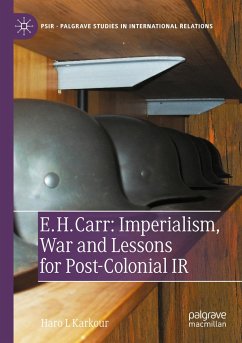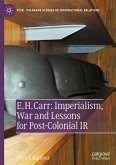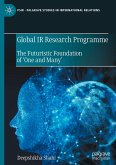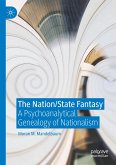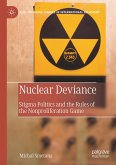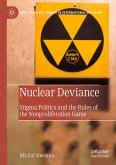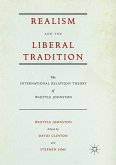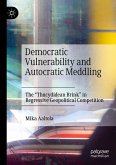This book highlights important parallels between Carr and three influential figures in the first wave of post-colonialism-DuBois, Césaire and Fanon-on the analysis of imperialism and the causes of war. Specifically, Carr's analysis of imperialism and war parallels the first wave post-colonial thinkers in two respects. First, Carr's work historically situates imperialism in the context of the social question in Western democracies. Second, Carr's work provides an ideology critique to Enlightenment rationalism, which postulates that 'reason could determine what [are] the universally valid moral laws' and thus 'by the voice of reason men could be persuaded both to save their own immoral souls and to move along the path of political enlightenment and progress' (Carr 1984, 22 and 24). Carr's ideology critique exposes the Enlightenment's pretences of reason and universality as a deceptive plea that legitimates imperialism. These parallels, the book argues, reveal that Carr didnot only recognise global hierarchy, but also theorised the role of what Julian Go refers to as the 'episteme of empire'-that is, 'the meanings and modalities of seeing and knowing that ... accompanied empire and made it possible in the first place' (Go 2017, 19-20). Carr's IR theory, in short, was much closer to post-colonial thinking than previously appreciated in the discipline.
"Karkour's reinterpretation of Carr's work is likely to raise eyebrows among self-proclaimed realists and postcolonial scholars alike. Nonetheless, it is also provocative in a positive way. The book takes an important step in reassessing the historical sociology of the discipline and blind canonization within IR. Karkour's critique of linearity and his subsequent reassessment of Carr's 'postcolonial thinking' offer the most significant lesson for modern IR scholars of all persuasions ... ." (Jude Rowley, International Affairs, Vol. 99 (2), 2023)

